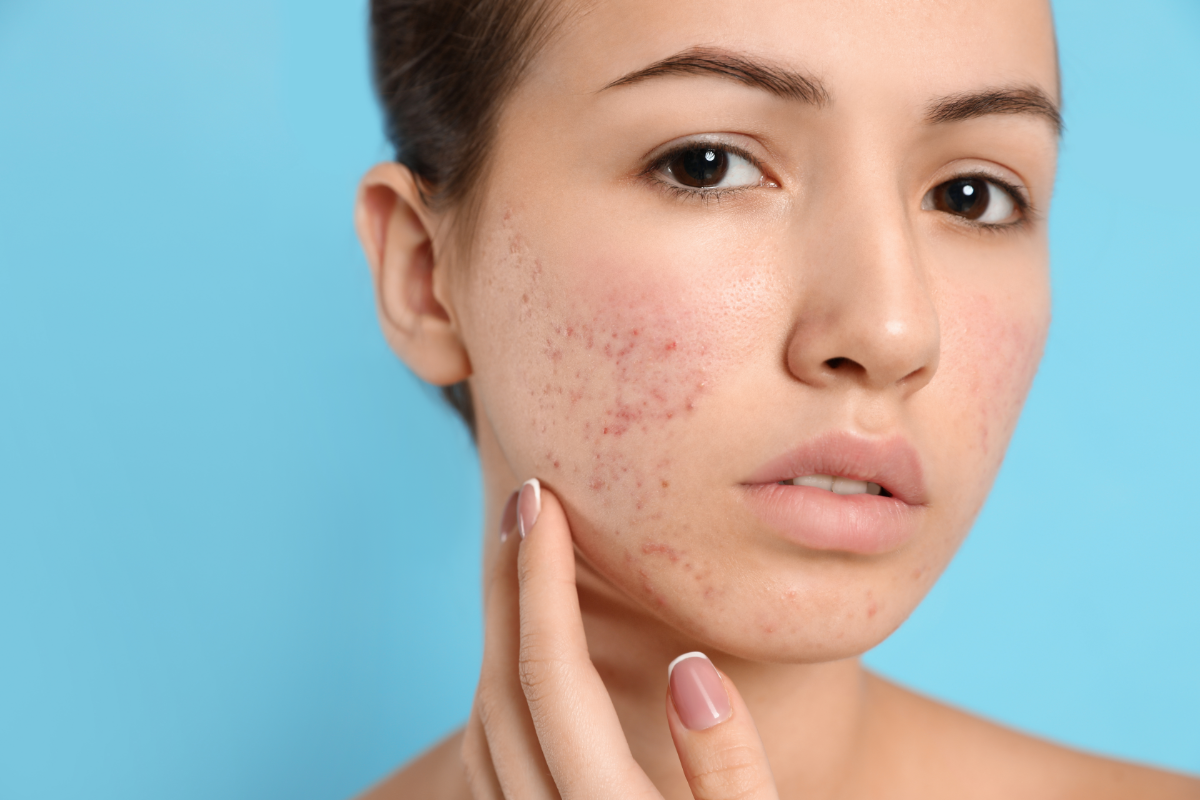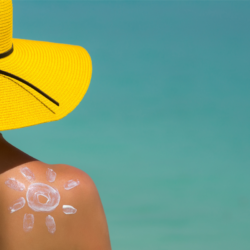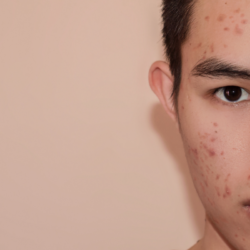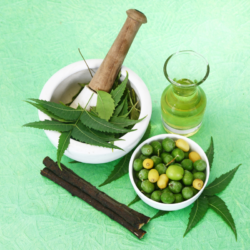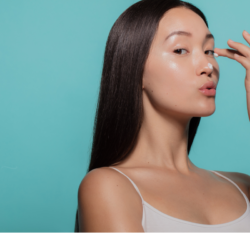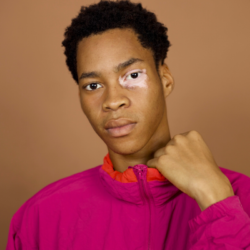When it comes to skincare, there are a multitude of myths and misunderstandings. One of the most controversial is undoubtedly,“Does the sun cure acne?” This article aims to tackle this question head on, providing you with the most up-to-date and accurate information based on dermatological research.
Understanding acne: What’s really going on?
To understand whether the sun can really cure acne, it’s important to first understand what acne is. Acne is an inflammatory skin condition manifested by pimples, blackheads and cysts (unlike rosacea, which doesn’t cause blackheads but rather papules and pustules… thanks to Demodex! ). It mainly affects areas of the skin with the most sebaceous glands, such as the face, chest and back.
The role of sebaceous glands
The sebaceous glands in the dermis are responsible for producing sebum, an oily substance that is essential for healthy skin. However, when there is excessive production of sebum, particularly in people with acne-prone skin, this can lead to skin problems such as acne breakouts.
Excess sebum can mix with dead skin cells and clog hair follicles, creating a favourable environment for the development of Propionibacterium acnes, a bacterium implicated in acne. This reaction can lead to the formation of whiteheads, long-term acne scars and persistent acne flare-ups.
The management of acne-prone skin often involves the use of local treatments, such as benzoyl peroxide, to regulate excessive sebum production and combat the spread of Propionibacterium acnes. However, it’s important to note that some local treatments can make the skin more sensitive to UV rays, increasing the risk of sunburn and skin damage. So it’s vital to protect the skin from the sun’s rays and use skin care products to strengthen the skin barrier every night.
It is therefore essential to protect the skin of people with oily, acne-prone skin by using a suitable sun cream to ensure adequate sun protection. This sun cream must be chosen carefully to avoid causing an increase in sebum production.
In addition, using a non-comedogenic moisturiser can help to keep the skin hydrated while preventing pores from clogging. By combining acne treatment, appropriate sun protection and a good skincare routine, it is possible to effectively manage acne-prone skin while minimising acne scarring and preserving the skin’s long-term health.
The impact of bacteria on acne
A bacterium called Propionibacterium acnes (P. acnes) plays a major role in the development of acne. This bacterium lives on the skin and develops in clogged follicles, where it feeds on sebum, grows and can cause inflammation and acne. Hence the importance of using the right treatment to limit the proliferation of this bacterium.
The sun and your skin: a double-edged sword?
whenI go out in the sun, I don’t get pimples! The sun is often seen as a panacea for many skin ailments, including acne. But can it really help? Let’s take an in-depth look at this idea.
The positive effects of sun exposure
Moderate exposure to the sun can have a number of positive effects on the skin. It promotes the production of vitamin D, an essential nutrient that plays a crucial role in skin health. What’s more, sunlight triggers the release of endorphins, the body’s natural feel-good hormones, which may indirectly improve the overall health of your skin.
The negative effects of sun exposure
On the other hand, excessive exposure to the sun can cause damage. It can lead to premature skin ageing, burns and even skin cancer. But how does sun exposure relate specifically to acne?
A study from 2023 highlights that, despite temporary improvement of acne lesions by the sun, exposure can induce inflammatory reactions and post-inflammatory hyperpigmentation. This research, which highlights the importance of photoprotection in the management of acne, suggests that the use of specifically formulated sun creams could not only improve the efficacy of treatments but also reduce inflammation and the risk of hyperpigmentation. (1)
Does the sun cure acne? The science behind the myth
The belief that exposure to the sun can cure acne is widespread. But what does the science say?
Sun exposure and skin inflammation
Exposure to the sun can reduce the inflammation seen in acne, giving the impression that the acne is improving. This is due to the anti-inflammatory properties of ultraviolet (UV) radiation. The skin reddens, and the contrast between the acne and the skin may diminish, making the acne less visible.
The drying effect of the sun
The sun can actually dry out your skin, which may initially seem to help with acne. However, this effect is temporary. In the long term, it can lead to an overproduction of sebum as the skin tries to compensate for the dryness, which can potentially make acne worse.
The reality: Skin ageing and sun damage
While the sun may provide a temporary reprieve from acne, its long-term effects can be harmful. Sun exposure leads to skin ageing – premature ageing of the skin caused by the sun. This includes wrinkles, dark spots and a parchment-like appearance. In addition, UV radiation can cause cellular damage, increasing the risk of skin cancer.
The verdict: Does the sun cure acne?
In the light of the evidence, it seems clear that the sun is not a reliable or safe method of treating acne. The improvements seen initially can quickly give way to more serious skin problems. So what are the alternatives?
The importance of sun cream in the treatment of acne
When it comes to managing acne, the importance of using appropriate sun protection cannot be underestimated. With the development of new formulations, we now have access to suncare products that meet the specific needs of acne-prone skin, offering protection while treating acne problems.
Take PAPULEX UV SPF30, for example. This product combines SPF30 protection with 4% Niacinamide, a vitamin B3 that has anti-inflammatory properties and can help reduce the appearance of blemishes. It also contains 1% AAB, which provides an antibacterial barrier. This unique formula reduces blemishes while protecting the skin from the sun.
La Roche-Posay Anthelios anti-shine cream gel Spf50 offers very high SPF50 protection while controlling shine and matifying the skin. The product contains the new MEXORYL400 UV filter, which is effective against ultra-long, insidious and potentially harmful UVA rays. What’s more, it’s non-comedogenic, which means it won’t clog pores or exacerbate acne.
Isispharma offers Uveblock Spf50 Dry Touch Fluid, a highly protective and mattifying solution for oily and sun-sensitive skin. This product offers protection against UVB and UVA rays, but also contains naturally-occurringEctoin, which protects cells against UV-induced damage. Sophora Japonica flower extract completes the formula by combating oxidative stress induced by UV and infrared rays.
In short, using the right sun cream is an essential step in the skincare routine for acne-prone skin. These new formulations not only offer effective sun protection, but also simultaneously treat acne problems, making sun protection not only safe, but also beneficial for those fighting acne.
The role of dermatologists and skin professionals
Dermatologists and skin care professionals play a crucial role in acne management. They can recommend treatments depending on the type and severity of acne, including topical treatments, oral medications, or a combination of both.
Over-the-counter and prescription acne treatments
Over-the-counter products often contain salicylic acid, azelaic acid or benzoyl peroxide, which can help reduce acne. Prescription treatments can include retinoids, antibiotics and even hormone treatments in some cases.
The importance of a consistent skincare routine
A consistent skincare routine can go a long way towards managing acne. This includes regular cleansing, using non-comedogenic products, and exfoliating the skin to remove dead cells.
Lifestyle changes and their impact on acne
Certain lifestyle changes can also help manage acne. These include a balanceddiet, regular exercise, adequate hydration and getting enough sleep. It’s also important to manage stress, as it can exacerbate acne.
The psychological impact of acne
As well as being a skin condition, acne has a profound impact on mental health and emotional well-being. Research shows that acne sufferers can experience feelings of anxiety, depression and low self-esteem, significantly impacting their social and professional lives. This emotional distress should not be underestimated, as it can have a greater impact on quality of life than the physical symptoms of acne itself.
The importance of psychological support is therefore crucial. It is advisable to seek professional help if acne is affecting your mental well-being. Behavioural therapies, as well as support groups, can provide a space for sharing and understanding, helping to overcome the emotional challenges associated with the condition. Finally, open communication with dermatologists about the psychosocial aspects of acne can lead to a more holistic approach to treatment, addressing both the physical symptoms and the emotional impact.
Daily steps to protect and care for acne-prone skin
Here is a table summarising prevention and daily care advice for acne-prone skin:
| Prevention advice | Description | Remarks |
|---|---|---|
| Use of Sun Cream | Apply a sun cream suitable for acne-prone skin every day. | Choose non-comedogenic and oil-free formulas. |
| Wearing hats | Wear wide-brimmed hats for extra protection. | Useful when exposed to direct sunlight. |
| Use of parasols | Use parasols during outdoor activities. | Provides shade and reduces direct exposure to the sun. |
| Protective clothing | Wear light, covering clothing. | Tightly woven fabrics offer better protection. |
| Sunglasses | Use sunglasses to protect the area around the eyes. | Prefer sunglasses with UV protection. |
| Avoid Peak Sun Hours | Limit exposure to the sun between 10am and 4pm. | UV rays are strongest during these hours. |
| Moisturising the skin | Keep your skin well hydrated. | Use light moisturisers suitable for acne-prone skin. |
| Gentle skin cleansing | Cleanse the skin with gentle, non-irritating products. | Avoid abrasive or alcoholic cleansers. |
This table provides an overview of preventive and daily measures to protect sensitive or acne-prone skin, especially in relation to sun exposure.
FAQ
- Can sunburn cause acne?
Sunburn can cause inflammation and irritation, which can lead to a flare-up or worsen existing acne. So it’s important to protect your skin when you’re in the sun.
- Can sun cream cause acne?
Some sun creams can cause acne if they are greasy or oily. We recommend using non-comedogenic sunscreens that don’t clog pores.
- Is there a safe way of being exposed to the sun if I have acne?
Yes, but moderation is the key. Short periods in the sun can be good for your overall health and mood, but it’s crucial to use sun protection to avoid burns and damage.
- Can diet affect acne?
Yes, certain foods, particularly those high in sugar and fat, can make acne worse. A balanced diet with plenty of fruit and vegetables is recommended.
- Can stress cause acne?
Stress does not directly cause acne, but it can exacerbate it by triggering the production of oil.
So, to the question “Does the sun cure acne?”, the answer is a resounding no. While the sun may offer temporary relief, its long-term effects can exacerbate acne and cause other skin problems. Therefore, a proper skincare routine, lifestyle changes and professional treatment remain the best approach to managing acne.
References :
- https://pubmed.ncbi.nlm.nih.gov/36946555/
- https://www.eurofins-biomnis.com/referentiel/liendoc/precis/DEMODEX.pdf

